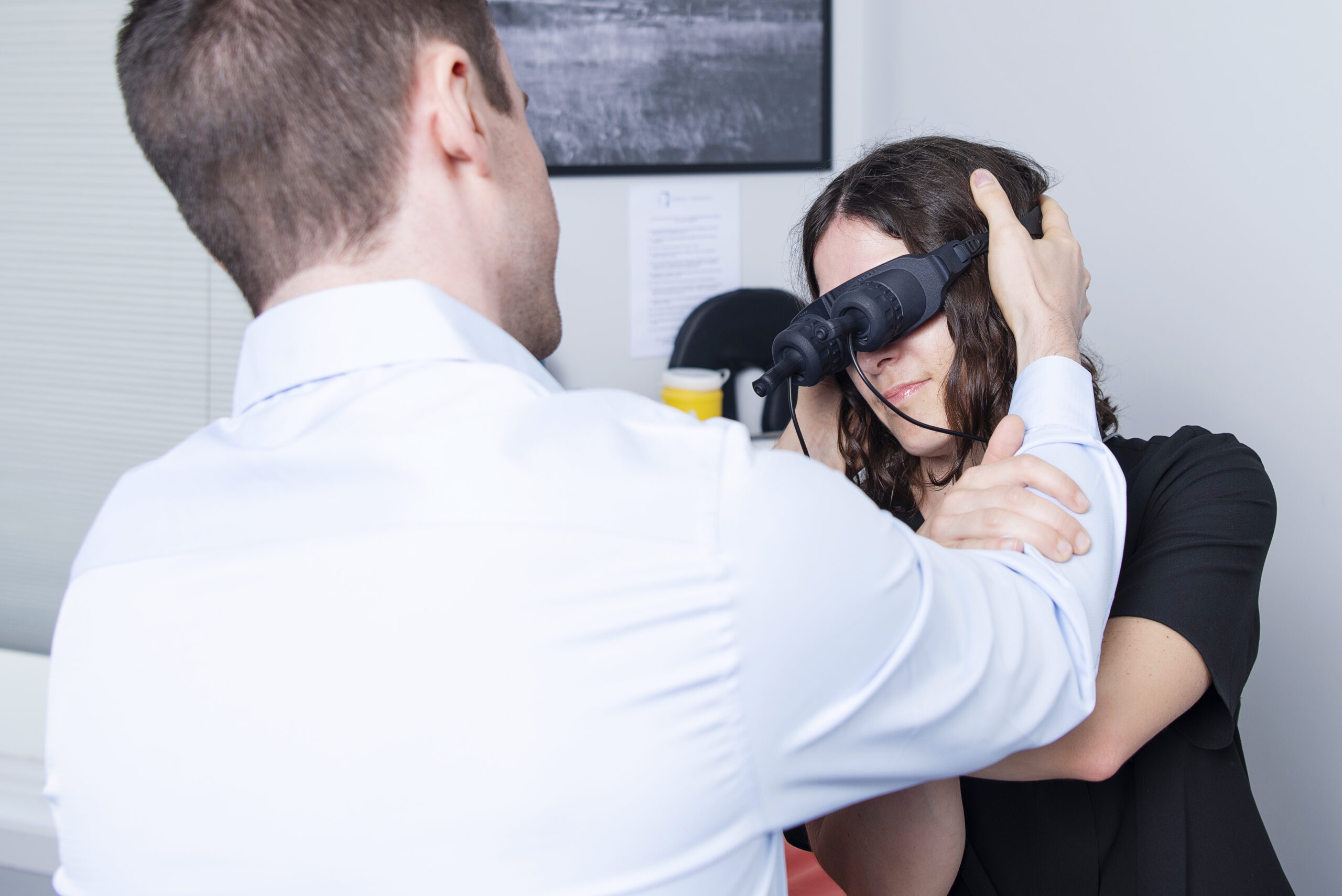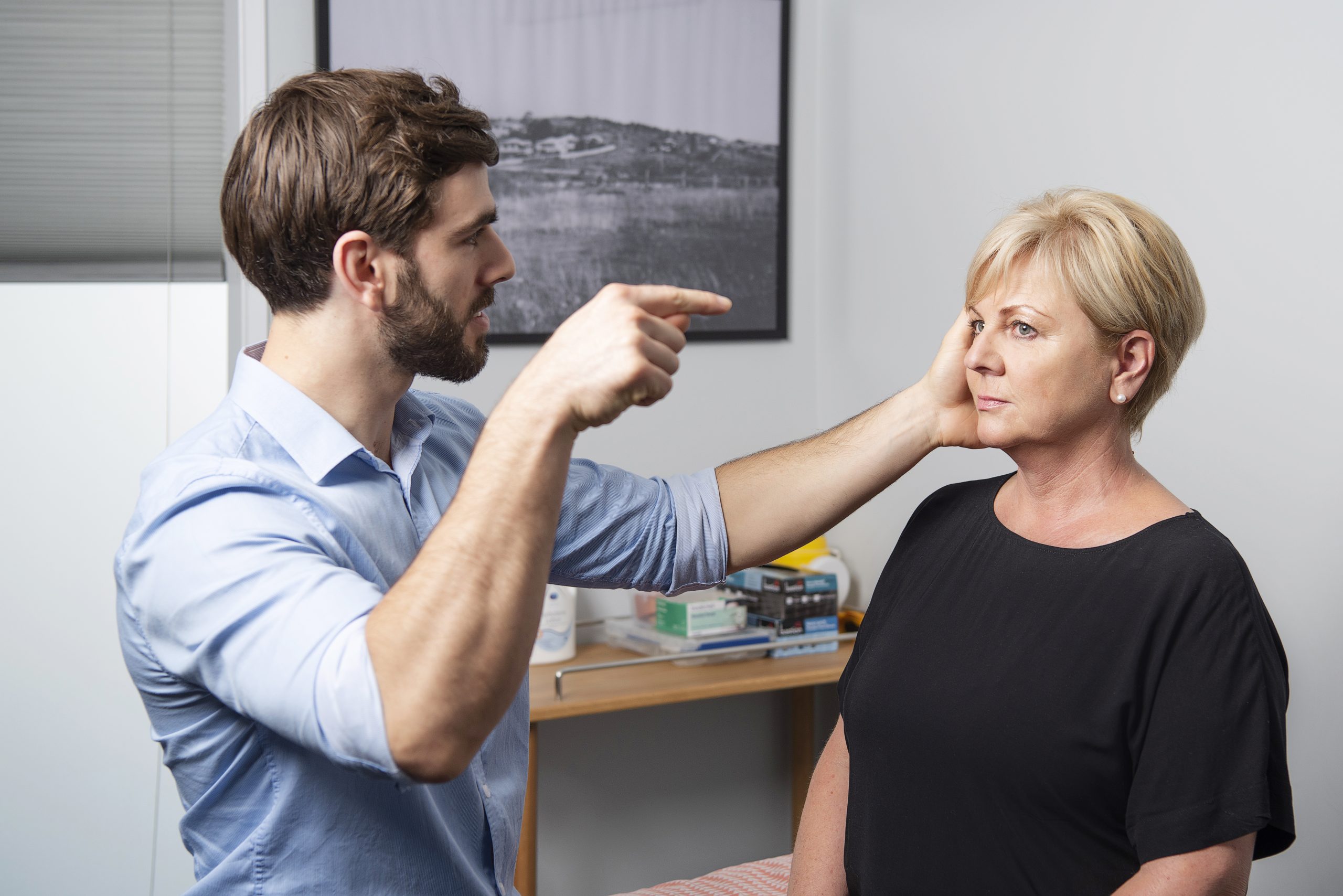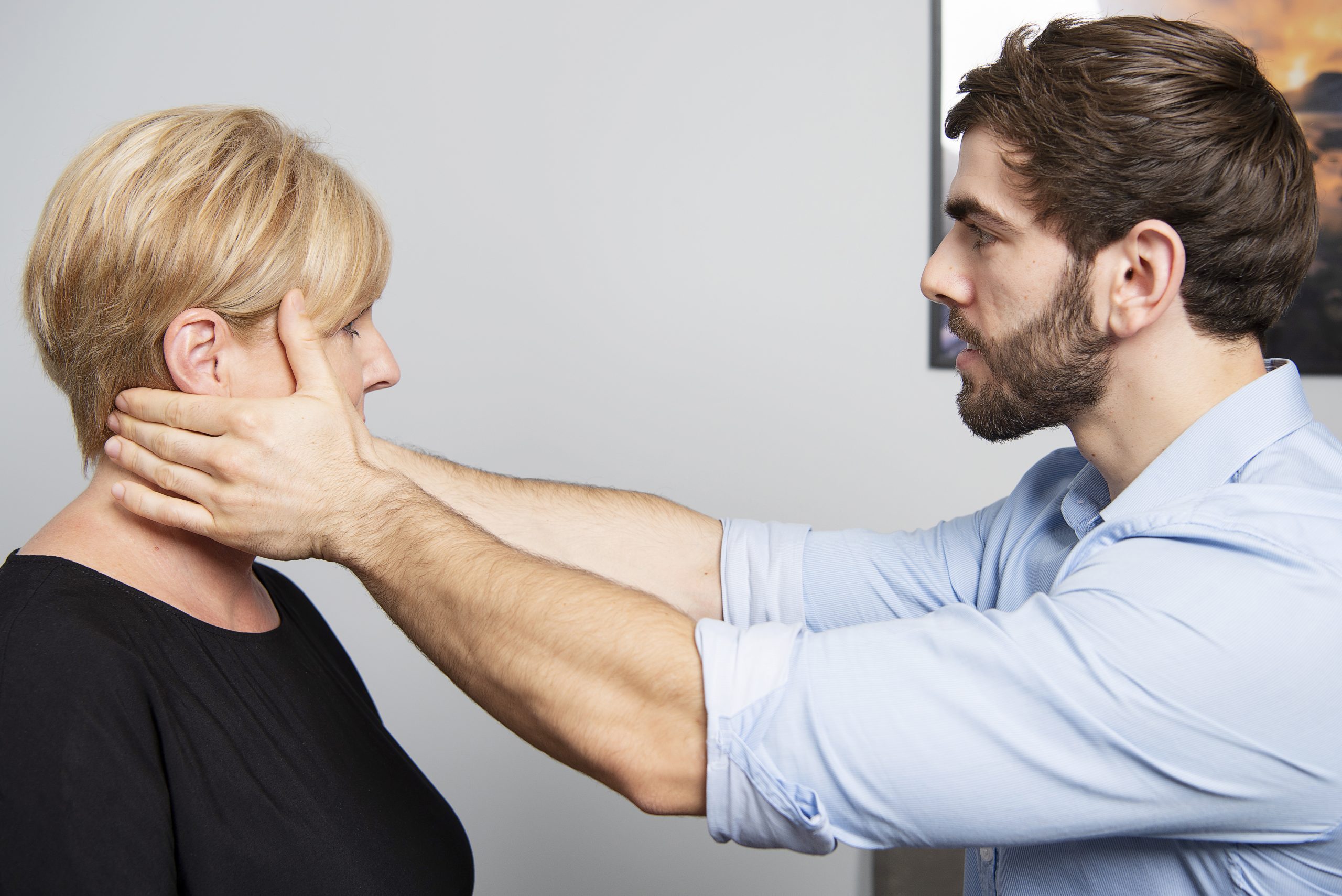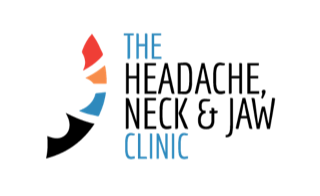Vertigo Treatment
At the Headache, Neck and Jaw Clinic, our physiotherapists provide vertigo treatment that reduces symptoms and helps you get back to the things you enjoy.

Physiotherapy for Vertigo Treatment
Vertigo is the sensation that you’re moving, or the world is moving, even when you’re stationary. Episodes can last for a few minutes, or the symptoms may be constant.
This can have serious effects on your balance, coordination and confidence in everyday tasks. It can be overwhelming to concentrate and complete tasks when your world is spinning or you feel like you are standing on shifting sand.
At the Headache, Neck and Jaw Clinic, our physiotherapists are trained to assess and treat vertigo. Our vertigo specialists work with you to identify the underlying cause and design a treatment that reduces symptoms and improves your confidence.
Book an appointment if you experience vertigo or if you’re concerned about balance and coordination. Seeing a physio for vertigo can provide relief and help you get back to the things you enjoy doing.


What Are the Symptoms of Vertigo?
Vertigo usually presents as the false sensation that you are moving, or that the world is moving around you, even when you are lying down or standing still. The most common symptoms include:
- Sense of Internal Vertigo (a false sense of you moving in the world)
- Sense of External Vertigo (a false sense of the world moving around you)
- Dysequilibrium
- Imbalance
- Motion sensitivity
- Rocking/swaying
Other symptoms can include lightheadedness, feeling faint, headaches, nausea, difficulty concentrating or blurred vision. You may also feel like you veer off to one side when you walk, or struggle to keep your balance.
Vertigo Conditions We Treat
- Benign Paroxysmal Positional Vertigo (BPPV)
- Meniere's Disease
- Cervicogenic Dizziness
- Vestibular Migraine
- Vestibular neuritis
- Acoustic neuroma
- Concussion / Mild Traumatic Brain Injury
- Vestibular Labyrinthitis
- Age-related Dizziness and Balance Disorders
- Persistent postural-perceptual dizziness (PPPD)
- Visually Induced dizziness
- Mal de Debarquement syndrome
How Our Vertigo Treatment Works
Physiotherapy is an effective treatment for most types of vertigo. Here at The Headache, Neck and Jaw Clinic, our physiotherapists are trained to assess and treat dysfunctions of the vestibular system and your balance.
Once we have assessed your vertigo, we’ll design a plan to treat the primary and secondary causes of vertigo. Your treatment plan may include:
- Vestibular rehabilitation therapy (VRT) – These are manual techniques and exercises that retrain the brain while it adapts to the information it receives from your vestibular system. This reduces the symptoms of dizziness and imbalance.
- Balance training – We use static and dynamic balance training to reduce symptoms and improve confidence with daily activities (Part of VRT).
- Otolith repositioning manoeuvres – Using position changes of the head to treat BPPV.
- Manual therapy – This includes joint mobilisations of the neck with sensorimotor integration exercises. Effective in treating cervicogenic dizziness.
You don’t need a referral, and our clinicians also screen for more serious causes of vertigo such as Meniere’s disease, or vestibular neuritis.
We will refer you to a GP if you need to undertake further testing such as CT scans or blood tests. We also assess your posture and any neck or migraine symptoms you may experience.
What To Expect From Our Assessment
Comprehensive Examination
During your comprehensive examination, we discuss your vertigo, history and anything that could contribute to your symptoms.
Hands-On Assessment
We’ll assess your balance, coordination, joints and eye movement (using vesticam goggles) to determine the cause of your vertigo.
Symptom Relief
Once we identify a cause, we can design a treatment program and exercises that help to retrain your brain and reduce symptoms.
Patient Education
Talk to us about any questions you have! We provide advice on vertigo, symptoms, treatments and exercises that can help.
Specialised Vestibular Physiotherapy in Brisbane
The vestibular system includes parts of the inner ear and brain responsible for balance and spatial awareness. Injuries to this system and the way the brain interprets signals can cause symptoms of vertigo, like dizziness and imbalance.
Our physios have additional training to perform vestibular rehabilitation therapy to help retrain your brain and alleviate the symptoms of vertigo. Everyone’s symptoms are different, so our vestibular physios in Brisbane take the time to customise a program that works for you.
Physiotherapy for vertigo uses a combination of manual techniques and exercises to retrain the brain and reduce symptoms over time. At our vertigo clinic, we can treat a range of vestibular conditions, including Benign Paroxysmal Positional Vertigo (BPPV), Meniere’s disease, and cervicogenic dizziness.


Vesticam Goggles for Vertigo Assessment
Vesticam goggles are a type of infrared goggles that can help a vestibular physiotherapist to determine whether the problem is related to your inner ear (vestibular system) or brain (central nervous system).
These goggles enable us to record eye movement during a range of vestibular tests and provide an accurate and efficient diagnosis. Learn more about how the Headache Neck and Jaw Clinic uses vesticam goggles in the assessment of vertigo.
Vesticam Goggles for Vertigo Assessment
Comprehensive Examination
During your comprehensive examination, we discuss your vertigo, history and anything that could contribute to your symptoms.
Hands-On Assessment
We’ll assess your balance, coordination, joints and eye movement (using vesticam goggles) to determine the cause of your vertigo.
Symptom Relief
Once we identify a cause, we can design a treatment program and exercises that help to retrain your brain and reduce symptoms.
Patient Education
Talk to us about any questions you have! We provide advice on vertigo, symptoms, treatments and exercises that can help.
Why Choose Our Vertigo Specialists
Not every physio is equipped to treat vertigo. But here at the Headache, Neck & Jaw Clinic, our physiotherapists have specialised training to treat the vestibular system and help you alleviate symptoms.
Living with vertigo can be difficult and isolating, but we’ve invested in advanced diagnostic tools to help find the source of your symptoms fast and put you on the road to recovery. Even if you’ve tried other treatments with no results, we can help. With the help of our vertigo specialists in Brisbane, our patients have been able to get back to doing the things they love.

Reach Out To Us!
Get in touch with us today for more information on our services or to make an appointment with our friendly team.
Ready To Book Online?
Use our online booking system to book your consultation with the physiotherapists at the Headache, Neck and Jaw clinic today!

Frequently Asked Questions
Most cases of vertigo are caused when the three main balance systems in your body are not telling your brain the same information. These 3 systems are:
- The balance organs in the inner ear (called the vestibular system)
- The position sensors in your joints and muscles, especially the neck and feet
- Your eyes
Dysfunction can occur in one or a combination of these three systems, or in the processing of this information in the brain. These systems can also deteriorate as part of the normal ageing process.
The Vestibular System is a group of sensory organs in your inner ear. These organs detect head movements and send that information to your brain. Together with information from your muscles, joints and eyes, the vestibular system helps your brain keep you balanced and coordinated.
The vestibular system is made up of 3 semicircular canals in each ear that are filled with fluid. Tiny hairs inside these canals sense when this fluid shifts as you move your head, telling your brain whether you are upright or tipped at angle.
The most common dysfunction is BPPV (Benign Paroxysmal Positional Vertigo). In this disorder, microscopic crystals in the canals of the vestibular system are dislodged through trauma, illness or the normal ageing process.
Movement of these crystals in the vestibular system can trick the brain into thinking your head is tilted even if your head is straight, resulting in an overwhelmed, spinning sensation.
More complex dysfunction includes complete loss of function in one or both of the inner ears. Fortunately, the brain can be trained to compensate for complete loss of function in the vestibular system by strengthening the use of vision and/or good postural awareness of the head and neck alignment.
Other factors include vestibular migraines and the high association between headaches, migraines and vertigo.
Dizziness is a term that refers to feeling faint, unsteady, unbalanced and disorientated. Vertigo refers to a false sensation that the world is moving or spinning around you, or that you are moving or spinning through the environment.
Vertigo is strongly related to inner ear problems, while dizziness can be related to any number of causes.
Our vertigo treatments are designed to retrain, strengthen and desensitise your vestibular system and brain. These techniques reduce symptoms of dizziness and improve balance.
You’ll need to perform these exercises over a prolonged period to see improvements and to prevent the vertigo from recurring.
The time it takes to see improvement depends on the cause of your vertigo. Patients with BPPV generally see an improvement after 1-3 treatments. For other types of vertigo, It may take 4-6 weeks of consistent vestibular exercises before your balance improves and you see a reduction in dizziness.
Talk to our physiotherapists to find out more – we can provide more information about how long the process will take for you.
